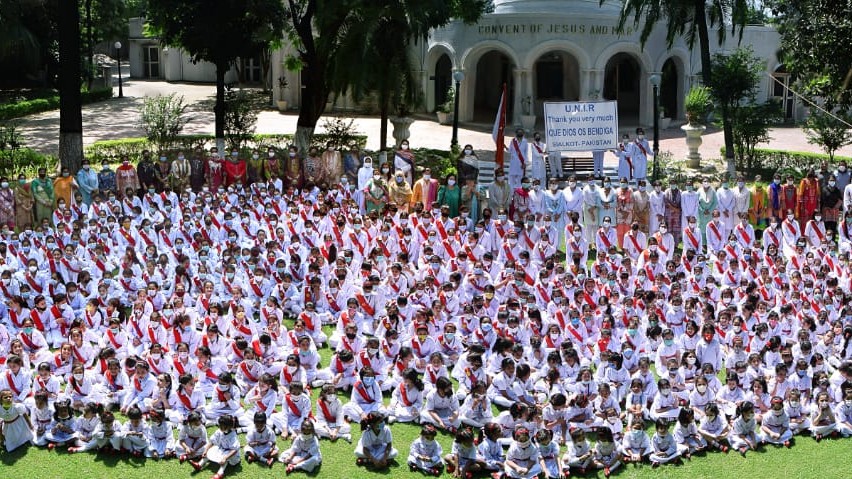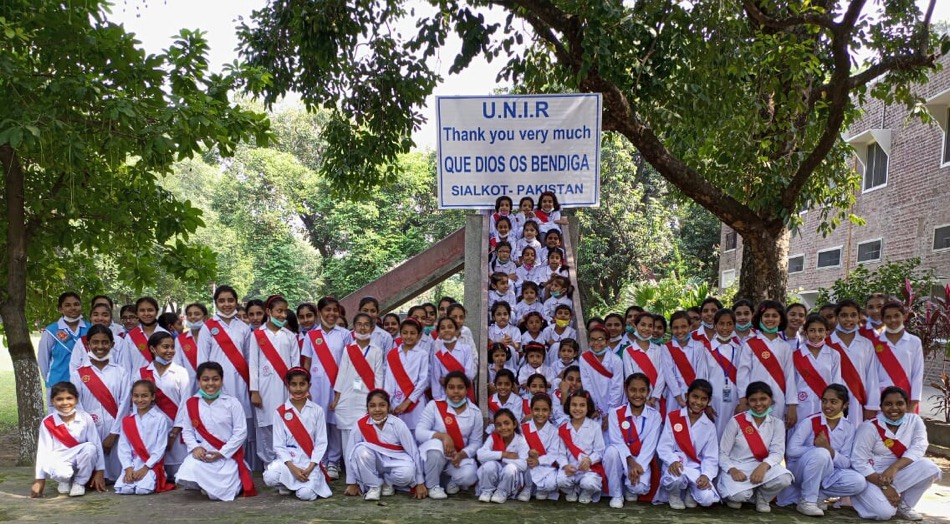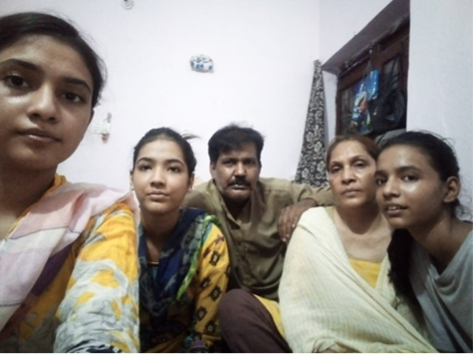UNIR helps six schools in Pakistan improve education and fight poverty
30 / 09 / 2021
The University provides scholarships so that children and young people can continue studying, helps pay part of teachers’ salaries, and provides online training for school principals.

The International University of La Rioja has been collaborating very closely with a group of primary schools in various cities in Pakistan for a few years: Mariakhel, Shadabagh, Murree, Sialkot, Toba-Tek-Sin and Matric Section. These centers, managed by the nuns of the Congregation of Jesus-Mary, welcome children and young people, the vast majority of whom are Catholic and Muslims, with some Protestants, all of them in serious conditions of poverty, unemployment, and discrimination.
UNIR helps these children and young people through scholarships that allow them to continue with their studies. Thanks to the program that the university has signed with the primary schools, student fees can be paid, and professors’ payroll completed, which in many cases is insufficient. In addition, the agreement makes it possible to maintain the buildings, purchase books and uniforms, as well as purchase laptops and scanners.

Children, like those shown in the photo of the Sialkot school, accept this opportunity with enthusiasm and gratitude. “With these improvements, the interest in learning has grown exponentially, which fills us with satisfaction,” says a Spanish nun from the congregation in Pakistan.
Likewise, UNIR offers online training to the directors of these schools so that they master the tools and resources that allow them to improve their management.
The story of Zebia
Zebia Enmanuel is one of the students benefiting from this aid program. She is the eldest of three sisters from a very needy family. She studied at the Matric Section, where she was School Captain, and this year she will complete her FSC studies (similar to our Bachelor of Science).

The family (in the photo), made up of her parents and three sisters, lives in a room with a small terrace that serves as a second room and kitchen. The father is a rikshaw driver (a light two-wheeled vehicle that moves by human traction, either on foot or by pedals) and with what he earns, he can barely pay rent for their house.
There are many occasions when they have no income and frequently the nuns give them a food ration. Zebia’s father is quite weak and is often ill, which prevents him from driving and earning money. During the pandemic she got COVID-19, and this year she had to start working to support her family. Zebia tries to help some children by giving classes, but among poor households it is difficult.
She is a mature person, aware of her role in the family and grateful for the opportunity to learn. Her parents have no education, but she was able to attend classes thanks to the UNIR scholarship program. Her sisters currently receive school help to study in Matric Section.